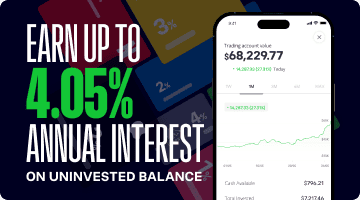Volatility (noun): liability to change rapidly and unpredictably, especially for the worse
It’s a word we often don’t use in everyday speech, and therefore, we might not know exactly what volatility means, but it is something investors in cryptos need to be aware of.
To start this brief instruction manual, let’s look at traditional financial markets.
Companies listed on international stock markets see the price of their shares rise and fall depending on a number of issues relating to their business: growth, income, losses, potential merger and acquisition activity, the list goes on.
Whatever it is, there is usually a concrete reason that you, as an investor can use to make a decision whether to buy or sell. The company’s sales might be down or up, the sector might be in or out of favour with investors, or the chief exec might have been caught doing something they shouldn’t.
Equally, the currency the stock is listed in might be having a good or bad spell, which would impact its movement. The currency falls and investors outside the country can buy something cheaply; it rises and they can cash out for more than they thought.
Currency markets, such as those trading pounds, euros, dollars and yen, are closer to cryptocurrencies as they are not based on actual companies, but rather the sentiment about how those trading in the market feel about its direction.
BUY CRYPTO NOW
Cryptoassets are unregulated. Your capital is at risk.
If currency market traders think a certain country is going to make a decision that will boost its standing/growth/power on the world stage, they will pay more to buy that money.
And if a country announces a massive change in its international trade strategy… like Brexit, for example, traders will react less positively, until, of course, they see any results that change their mind.
These moves up and down are called “volatility” and traders try to harness it to
So, now you know how traditional markets work.
Next, let’s look at crypto markets – everything you just learnt? Forget it.
In the world of crypto, there are no rules. Currencies are not tied to actions made by governments or company executives – and that’s the point.
Cryptocurrencies were made to be different – but that means they also have to be treated differently.
Just because the global economy is doing well does not mean cryptocurrencies will go up. In fact, there might even be an argument that when the traditional markets are working well, people may turn away from crypto.
Look at 2018, when global stock markets were riding high, crypto was collapsing.
Like traditional currency markets, cryptocurrencies are based on sentiment – but it is not yet clear what this is based on. That’s not to say they won’t go up, but they will also go down – and it might be unwise to listen to those claiming to have a view on why.
Crypto investors need to be prepared for a bumpy ride – but it could be a rewarding one, too.
BUY CRYPTO NOW
Cryptoassets are unregulated. Your capital is at risk.
eToro is a multi-asset platform which offers both investing in stocks and cryptoassets, as well as trading CFDs.
CFDs are complex instruments and come with a high risk of losing money rapidly due to leverage. 66% of retail investor accounts lose money when trading CFDs with this provider. You should consider whether you understand how CFDs work, and whether you can afford to take the high risk of losing your money.
Cryptoassets are volatile instruments which can fluctuate widely in a very short timeframe and therefore are not appropriate for all investors. Other than via CFDs, trading cryptoassets is unregulated and therefore is not supervised by any EU regulatory framework. Your capital is at risk.




